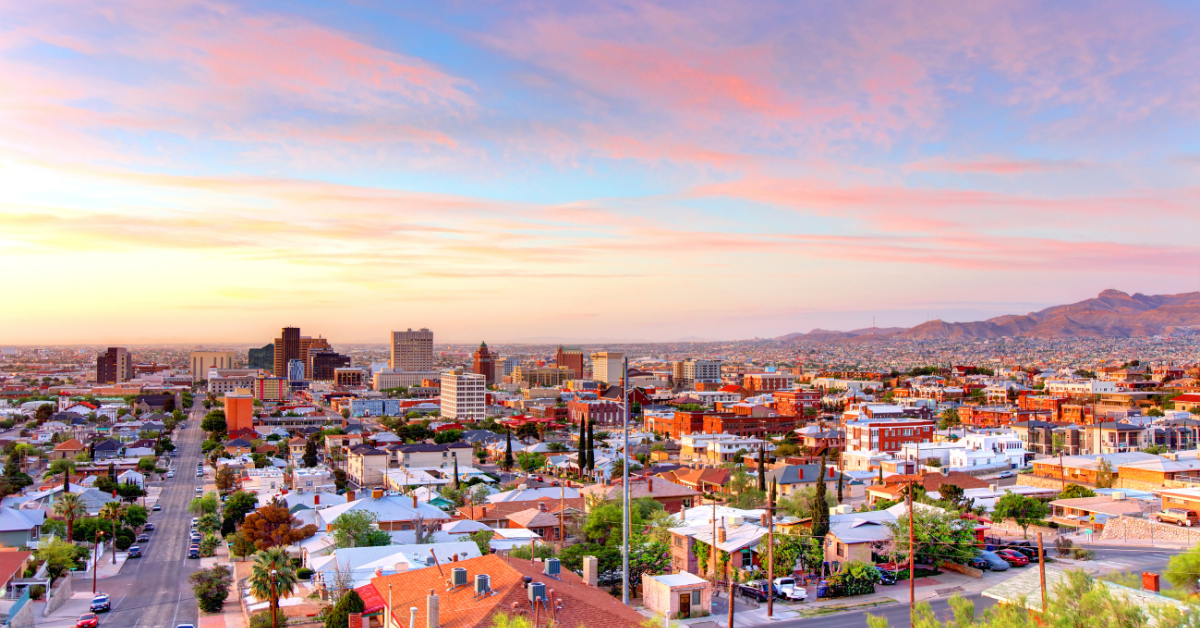El Paso, a border city connecting the United States and Mexico, does not have an official Kanji name. However, it is sometimes transcribed phonetically as “埃爾巴索.” For Japanese people, the city carries impressions ranging from a vibrant cultural hub to a place associated with border tensions.
The Meaning of the Name El Paso
El Paso comes from Spanish, meaning “pass” or “pathway.” Historically, this location was an important route for Spanish explorers, and the name became established as the city’s designation. In Japanese, it is usually written in Katakana as エル・パソ, and no official Kanji exists. However, in some cases, it is transcribed as “埃爾巴索.”
The Construction of the Kanji “埃爾巴索”
The Kanji representation is based on sound rather than meaning.
| Kanji | Reading | Phonetic target | Feature |
|---|---|---|---|
| 埃 | Ai | Part of “El” | Chosen to approximate sound |
| 爾 | Ru | Supplement to “El” | Carries no meaning |
| 巴 | Pa | Pa | Commonly used in Chinese phonetic transcriptions |
| 索 | So | So | Selected for sound reproduction |
The Kanji here do not convey meaning but are selected to match the sound. While rarely used in Japan, this transcription can appear in academic works or in Chinese texts where it is common practice to render foreign names in Kanji.
The Image Japanese People Have of El Paso
For many Japanese, El Paso is not a familiar city, but several impressions are common.
| Image | Description | Example |
|---|---|---|
| Border city | A place linking the U.S. and Mexico | Cultural exchange, immigration news |
| Concerns about safety | Tension typical of border areas | Media reports |
| Fusion of cultures | Reflected in food and music | Tacos, mariachi |
| City of arts and music | Country, rock, traditional genres | Festivals and live events |
While safety concerns are often highlighted in the news, food, music, and cultural diversity are positive aspects many Japanese associate with El Paso.
El Paso as a Center of Music and Art
El Paso has grown as a hub of music and the arts, shaped by cross-border culture. Country, rock, and mariachi music are widely enjoyed, while museums and galleries showcase the region’s history and creativity. For Japanese visitors, El Paso is remembered as a city where art and exotic atmosphere can be experienced together.
El Paso as a Sports City
Sports play an important role in El Paso’s community identity. College football and professional baseball are especially popular.
| Sport | Team or Event | Feature |
|---|---|---|
| College football | UTEP Miners (University of Texas at El Paso) | Represents local pride, game days electrify the city |
| Baseball | El Paso Chihuahuas (Minor League) | Family-friendly, offers classic American ballpark experiences |
| Boxing and combat sports | Matches thrive in the border context | Many Mexican fighters, generating passionate support |
Sports are a source of pride for El Paso residents, strengthening community bonds.
Food Culture and Daily Life
Food is a major part of El Paso’s appeal.
| Category | Feature | Japanese Impression |
|---|---|---|
| Mexican cuisine | Tacos, burritos, enchiladas as daily staples | Seen as a city where one can enjoy authentic flavors |
| American cuisine | Steaks, burgers, fast food widely available | Perceived as hearty and quintessentially American |
| Fusion food | Known as Tex-Mex | Reflects border culture |
For Japanese travelers, El Paso is a rare place where Mexican and American culinary traditions can be experienced side by side.
How Japan Views El Paso
El Paso is not widely known in Japan, so the image tends to be fragmentary. Keywords such as “border” and “safety” often dominate perceptions. Yet in reality, the city offers a balance of sports, music, food, and art. For tourists, it is seen as a city where they can experience another culture, while for researchers, it is valued as a place to study border culture.
Conclusion
El Paso has no official Kanji name, though it is sometimes written phonetically as “埃爾巴索.” While not a well-known city in Japan, it is notable for its unique identity as a border city, thriving sports and music culture, and rich food traditions. The original meaning of the name, “pass,” symbolizes its historical role as a crossroads of people and cultures, a quality that continues to define its image today.






